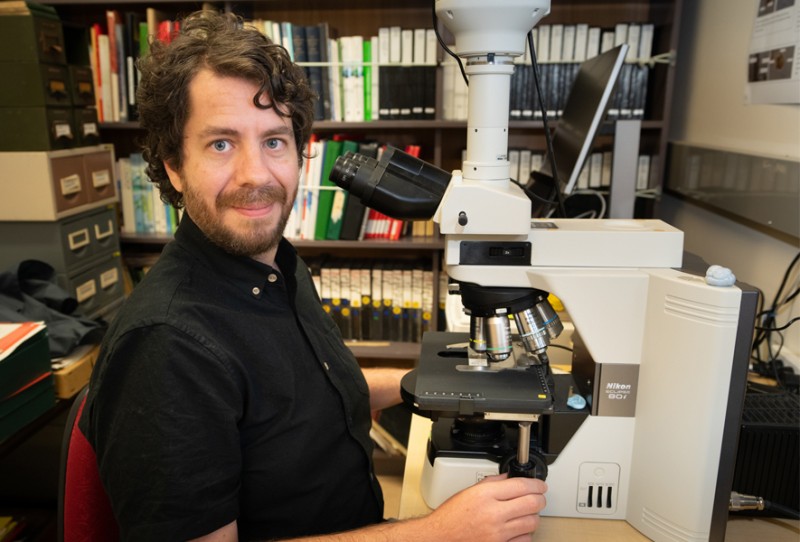
Research interests
I am a palaeoecologist with a broad range of interests, including in animal and plant ecology, biogeography, conservation biology and phylogenetics. I specialise on using past data (e.g., ancient DNA, fossils or prehistoric pollen or spores) to understand past ecosystems and how they have changed to present.
Specific Interests include:
- Using multiproxy evidence (e.g., ancient DNA, pollen records and distributions of fossils) to investigate palaeoecological questions.
- Recovering the natural distributions and habitat preferences of animal species using the fossil record and other palaeoecological data.
- Using palaeoecological data to guide conservation or habitat restoration.
- Phylogenetics and evolutionary history of NZ’s biota.
- Biogeography of southern hemisphere plants and animals.
- Reconstructing pre-human ecosystems on oceanic islands.
- Reconstructing the past diets and behaviours of extinct or endangered species.
- The impacts of severed species interactions on wider ecosystems (e.g., animal-plant disperser / pollinator roles, animal-fungi-plant tripartite mutualisms, or parasite-host interactions).
Qualifications
University of Auckland
PhD in Environmental Sciences
2021
University of Adelaide
MPhil in Biological Sciences
2016
Victoria University of Wellington
MSc with 1st Class Honours, Ecology and Biodiversity
2012
Victoria University of Wellington
BSc in Ecology and Biodiversity / Marine Biology
2008
Publications
Boast AP, Wood JR, Worthy TH, Perry GLW, Wilmshurst JM (2025). Using New Zealand’s late-Quaternary fossil record to estimate the past distribution and habitats of a relict species (kākāpō: Strigops habroptila). Quaternary Science Reviews. 356: 109287
Boast AP, Wood JR, Cooper J, Bolstridge N, Perry G L, Wilmshurst JM (2025). DNA and spores from coprolites reveal that colourful truffle-like fungi endemic to New Zealand were consumed by extinct moa (Dinornithiformes). Biology Letters. 21: 20240440
Boast AP, Wood JR, Bolstridge N, Perry G L, Wilmshurst JM (2023). Ancient and modern scats record broken ecological interactions and a decline in dietary breadth of the critically endangered kākāpō parrot (Strigops habroptilus). Frontiers in Ecology and Evolution, 11: 1058130
Boast AP (2019). A Holocene fossil South Island takahē (Porphyrio hochstetteri) in a high-altitude north-west Nelson cave. Notornis 66: 34-36
Boast AP, Chapman B, Herrera MB, Worthy TH, Scofield P, Tennyson AJD, Houde P, Bunce M, Cooper A, Mitchell K (2019). Mitochondrial genomes from New Zealand’s extinct adzebills (Aves: Aptornithidae: Aptornis) support a sister-taxon relationship with the Afro-Madagascan Sarothruridae. Diversity 11: 24
Boast AP, Weyrich LS, Wood JR, Metcalf JL, Knight R, Cooper A (2018). Coprolites reveal ecological interactions lost with the extinction of New Zealand birds. Proceedings of the National Academy of Sciences of the United States of America 115: 1546-1551